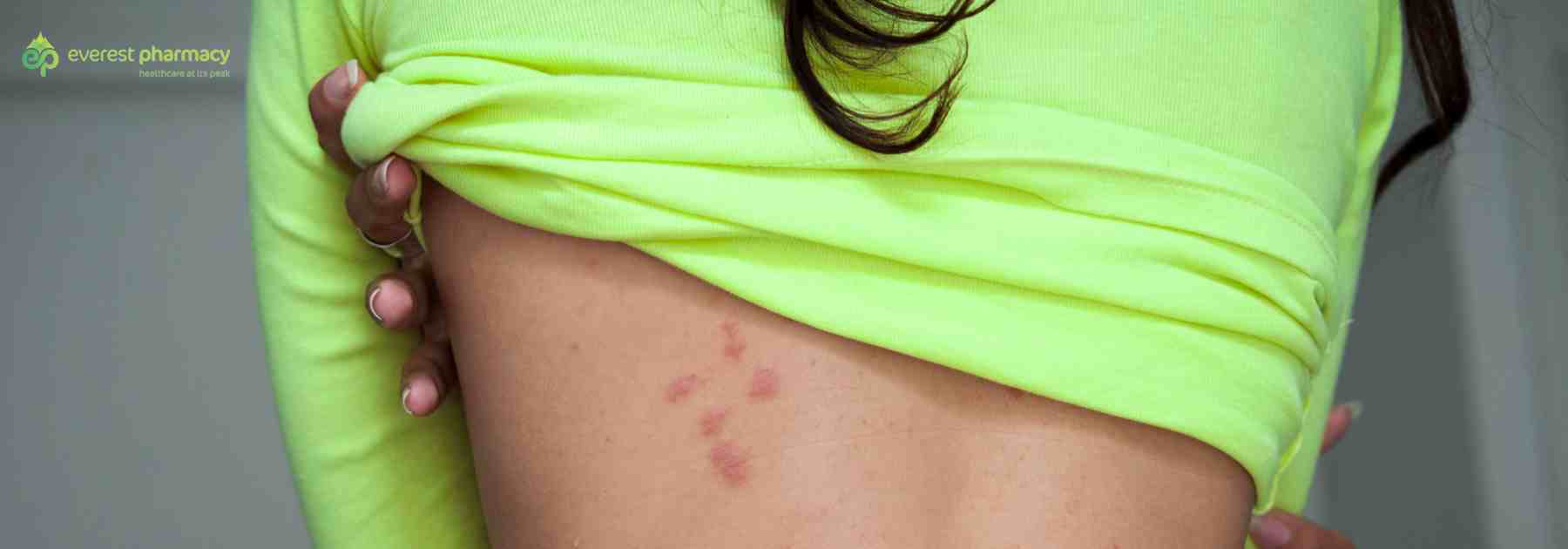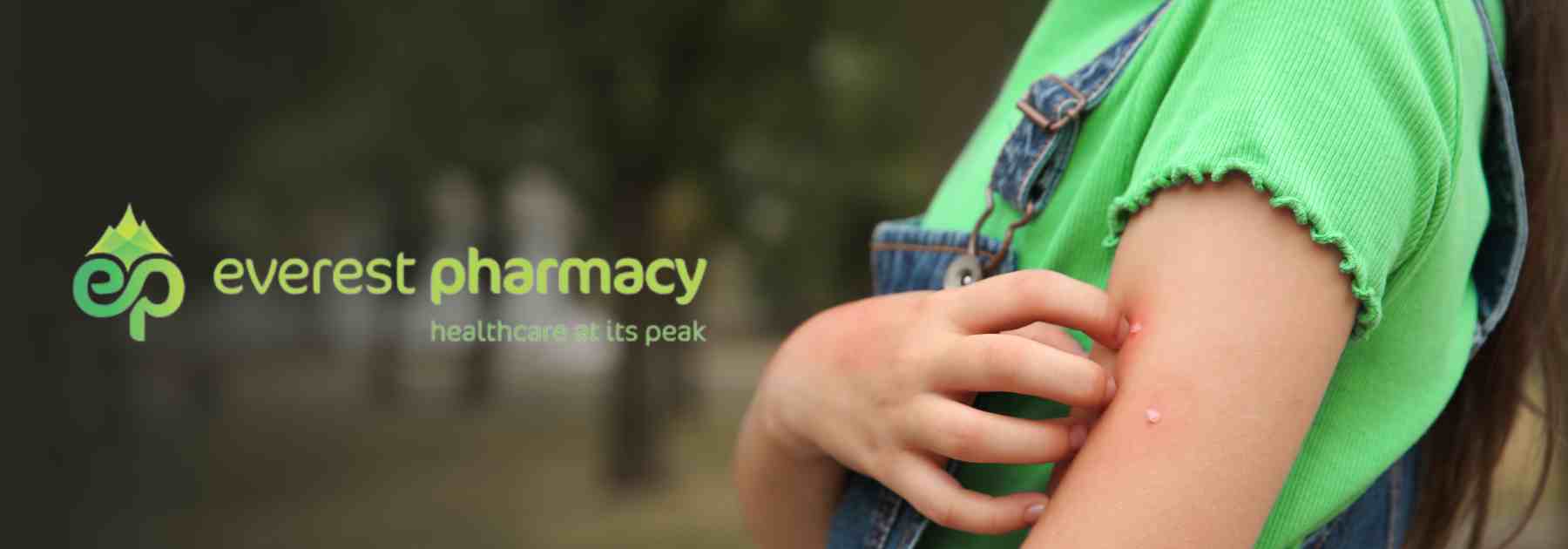How To Treat an Infected Insect Bite
Summer brings warmth and sunshine, perfect for outdoor activities, however, it also brings various insects that can bite or sting, sometimes leading to infections. Understanding how to recognise and treat infected insect bites is crucial for maintaining good health. Our team at Everest Pharmacy in Manchester provides essential treatment for infected insect bites through the NHS Pharmacy First Scheme. In this blog, we’ll explore how to identify an infected bite, the importance of seeking treatment, and the services available at Everest Pharmacy.
Recognising Infected Insect Bites
An insect bite occurs when an insect pierces the skin to feed on blood or to defend itself. Common insects that bite include mosquitoes, ticks, fleas, bedbugs, and spiders. While most insect bites are harmless and cause only minor irritation, some can become infected. Here are key signs that an insect bite might be infected:
Increased Redness and Swelling: While mild redness and swelling are common, significant increases may indicate infection.
Pain and Warmth: Infected bites often become painful and warm to the touch.
Pus or Discharge: The presence of pus or other discharge is a clear sign of infection.
Fever: A systemic response like fever indicates the infection might be spreading.
Red Streaks: Red streaks radiating from the bite site suggest the infection is moving through the lymphatic system.
Swollen Lymph Nodes: Lymph nodes near the bite might swell in response to infection.
Causes and Risk Factors
Infected insect bites occur when bacteria enter the wound created by the bite. Common bacteria include Staphylococcus aureus and Streptococcus pyogenes. Several factors can increase the risk of infection:
Scratching the Bite: Scratching can introduce bacteria from your hands into the wound.
Existing Skin Conditions: Conditions like eczema can compromise skin integrity, making infections more likely.
Poor Hygiene: Not keeping the bite area clean can lead to bacterial growth.
Weakened Immune System: People with weakened immune systems are more susceptible to infections.
Treating Infected Insect Bites
If you suspect an insect bite has become infected, it’s important to act quickly. Here’s a step-by-step guide to treating an infected insect bite:
Clean the Area: Wash the bite area with soap and water to remove bacteria.
Apply an Antiseptic: Use an over-the-counter antiseptic to prevent further bacterial growth.
Keep the Area Covered: Cover the bite with a sterile bandage to protect it from further contamination.
Avoid Scratching: Scratching can exacerbate the infection and introduce more bacteria.
Seek Medical Advice: If symptoms worsen or do not improve, seek professional medical advice.
Services at Everest Pharmacy
Everest Pharmacy in Manchester offers comprehensive treatment for infected insect bites through the NHS Pharmacy First Scheme. This scheme allows eligible patients to receive treatment for minor health conditions directly from their local pharmacy without needing to see a GP first. Here’s how we can help:
Assessment and Advice: Pharmacists can assess the severity of your insect bite and provide advice on appropriate treatment options.
Antibiotic Treatments: If the infection is severe, pharmacists can prescribe antibiotic creams or oral antibiotics to combat the infection.
Pain Relief: Over-the-counter pain relief options can be recommended to manage discomfort.
Follow-Up Care: Everest Pharmacy provides follow-up care to ensure the infection is healing properly and to offer additional advice if needed.
Preventing Insect Bites
Prevention is always better than cure. Here are some tips to minimise the risk of insect bites:
Use Insect Repellents: Apply insect repellent on exposed skin and clothing.
Wear Protective Clothing: Long sleeves, trousers, and hats can reduce skin exposure.
Keep Your Environment Clean: Regularly clean and remove standing water where insects like mosquitoes breed.
Use Mosquito Nets: Especially useful at night to prevent mosquito bites.
Stay Indoors During Peak Insect Activity: Dawn and dusk are peak times for many biting insects.
When to See a Doctor
While many insect bite infections can be treated effectively with over-the-counter remedies and pharmacist advice, some situations require a doctor’s attention:
Severe Symptoms: High fever, severe pain, or extensive redness and swelling.
Allergic Reactions: Difficulty breathing, swelling of the face or throat, or hives.
Persistent Infection: If the infection does not improve with initial treatment.
Treat Your Infected Insect Bite
Recognising the signs of an infected bite and knowing how to treat it effectively can make a significant difference in recovery time and comfort. With professional assessment, treatment options, and preventive advice, Everest Pharmacy ensures you stay healthy and enjoy your time outdoors without the worry of infected insect bites.
For more information or to seek treatment, visit Everest Pharmacy and take advantage of our expertise and services in managing insect bite infections. Your health and well-being are our top priority.

This blog was written on behalf of Everest Pharmacy by Pharmacy Mentor.

